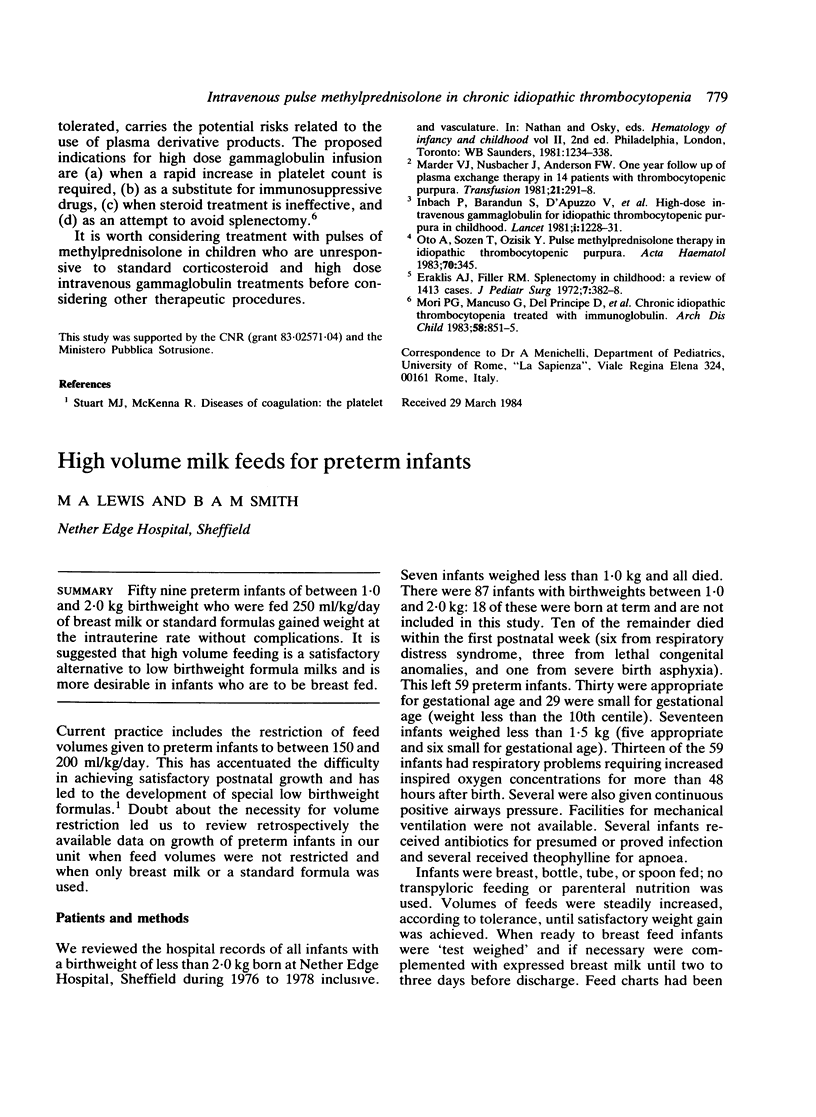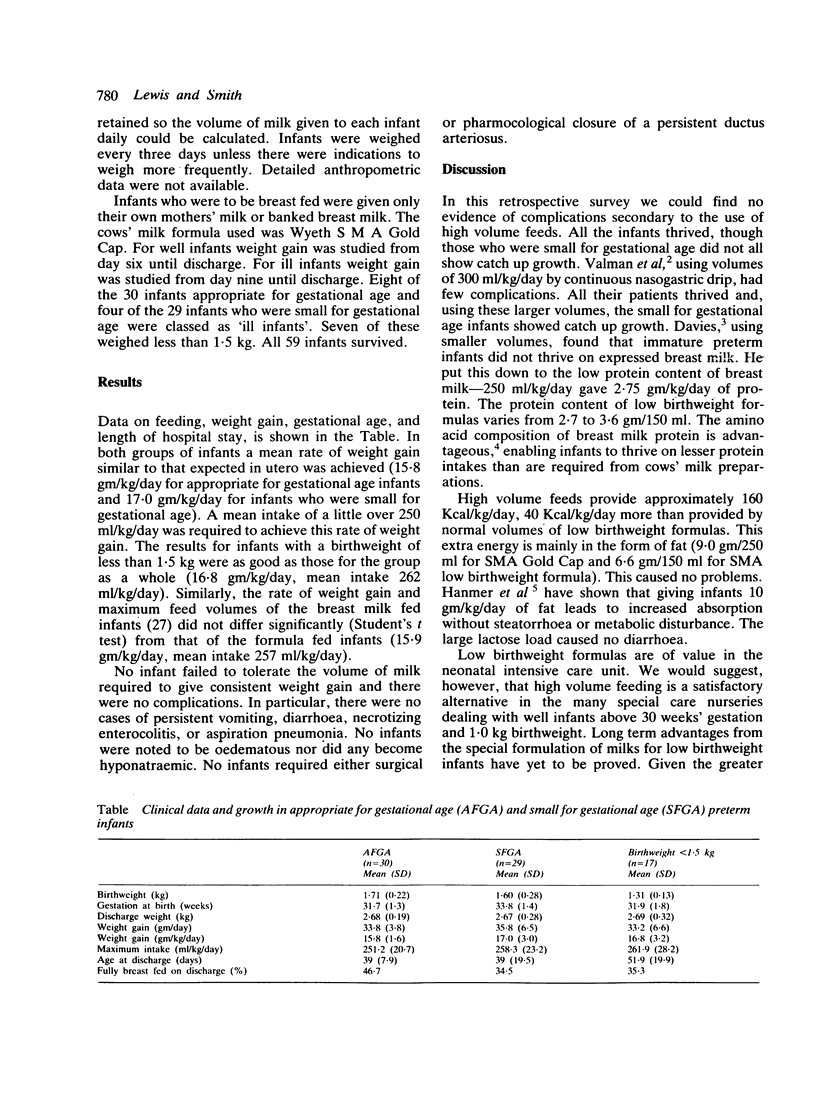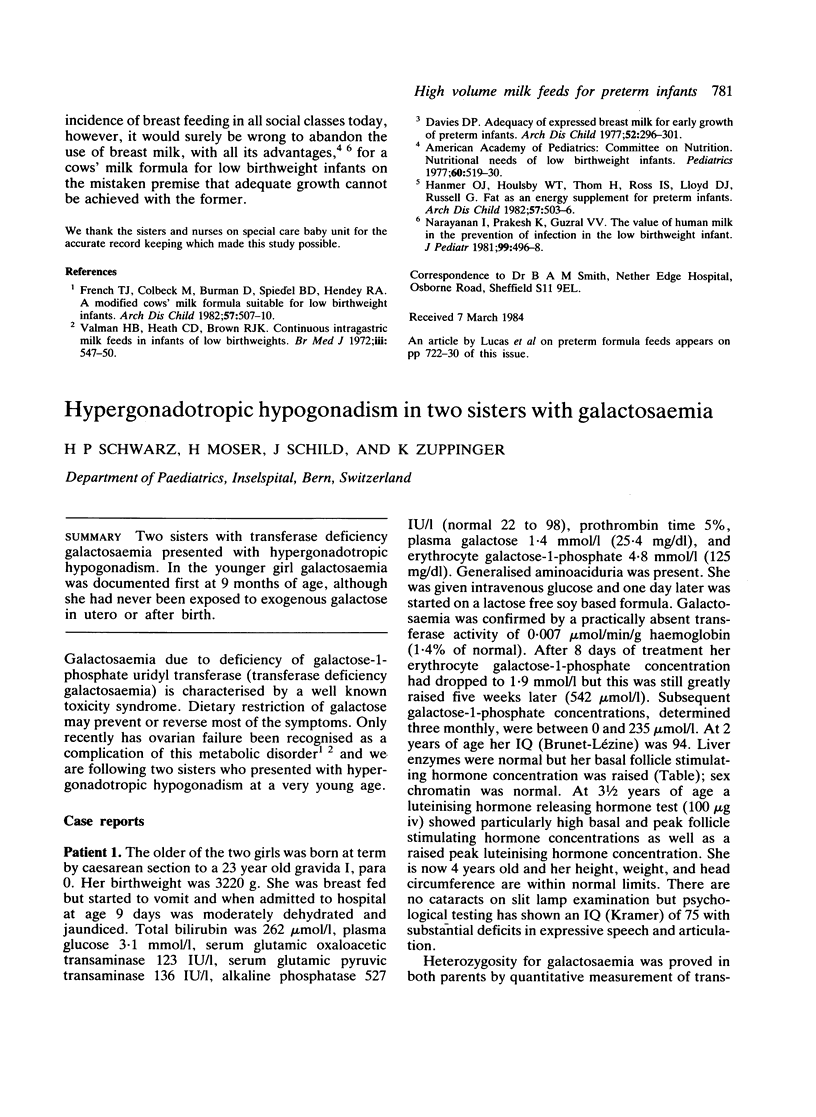Abstract
Fifty nine preterm infants of between 1.0 and 2.0 kg birthweight who were fed 250 ml/kg/day of breast milk or standard formulas gained weight at the intrauterine rate without complications. It is suggested that high volume feeding is a satisfactory alternative to low birthweight formula milks and is more desirable in infants who are to be breast fed.
Full text
PDF


Selected References
These references are in PubMed. This may not be the complete list of references from this article.
- Davies D. P. Adequacy of expressed breast milk for early growth of preterm infants. Arch Dis Child. 1977 Apr;52(4):296–301. doi: 10.1136/adc.52.4.296. [DOI] [PMC free article] [PubMed] [Google Scholar]
- French T. J., Colbeck M., Burman D., Speidel B. D., Hendey R. A. A modified cows' milk formula suitable for low birthweight infants. Arch Dis Child. 1982 Jul;57(7):507–510. doi: 10.1136/adc.57.7.507. [DOI] [PMC free article] [PubMed] [Google Scholar]
- Hanmer O. J., Houlsby W. T., Thom H., Ross I. S., Lloyd D. J., Russell G. Fat as an energy supplement for preterm infants. Arch Dis Child. 1982 Jul;57(7):503–506. doi: 10.1136/adc.57.7.503. [DOI] [PMC free article] [PubMed] [Google Scholar]
- Narayanan I., Prakash K., Gujral V. V. The value of human milk in the prevention of infection in the high-risk low-birth-weight infant. J Pediatr. 1981 Sep;99(3):496–498. doi: 10.1016/s0022-3476(81)80360-5. [DOI] [PubMed] [Google Scholar]
- Valman H. B., Heath C. D., Brown R. J. Continuous intragastric milk feeds in infants of low birth weight. Br Med J. 1972 Sep 2;3(5826):547–550. doi: 10.1136/bmj.3.5826.547. [DOI] [PMC free article] [PubMed] [Google Scholar]


